Abstract
Of 1,053 medical geneticists in 18 nations 677 (64%) returned questionnaires on their views on the importance of seven goals of genetic counseling, the appropriateness of five directive/nondirective approaches to counseling, and their choices of action in four situations involving directive/nondirective counseling. The majority (92%-94%) regarded nondirective approaches as appropriate; their views on both goals and approaches were similar to those reported in an earlier survey of 205 genetic counselors in the United States. In clinical situations involving presentation of reproductive options to carriers of disorders not diagnosable prenatally, 74%-85% would present contraception, sterilization, taking one's chances, artificial insemination donor (AID), or adoption as options even if not asked; 66% would present in vitro fertilization (IVF) with a donor egg; and 46% (67% in the United States) would present surrogate motherhood. In regard to three situations involving fetuses with low-burden disorders (Turner syndrome, XYY, and a possible small neural tube defect), 84%-88% would counsel nondirectively. Stepwise logistic regression analyses on professional and personal background variables showed that gender was related, cross-nationally, to self-reported directiveness in counseling, with men more likely than women to regard directive approaches as appropriate, more likely to give advice about fetuses with low-burden disorders, and more likely to present either IVF with donor egg or surrogate motherhood as options. Social and ethical implications of this widespread acceptance of nondirective counseling are discussed.
Full text
PDF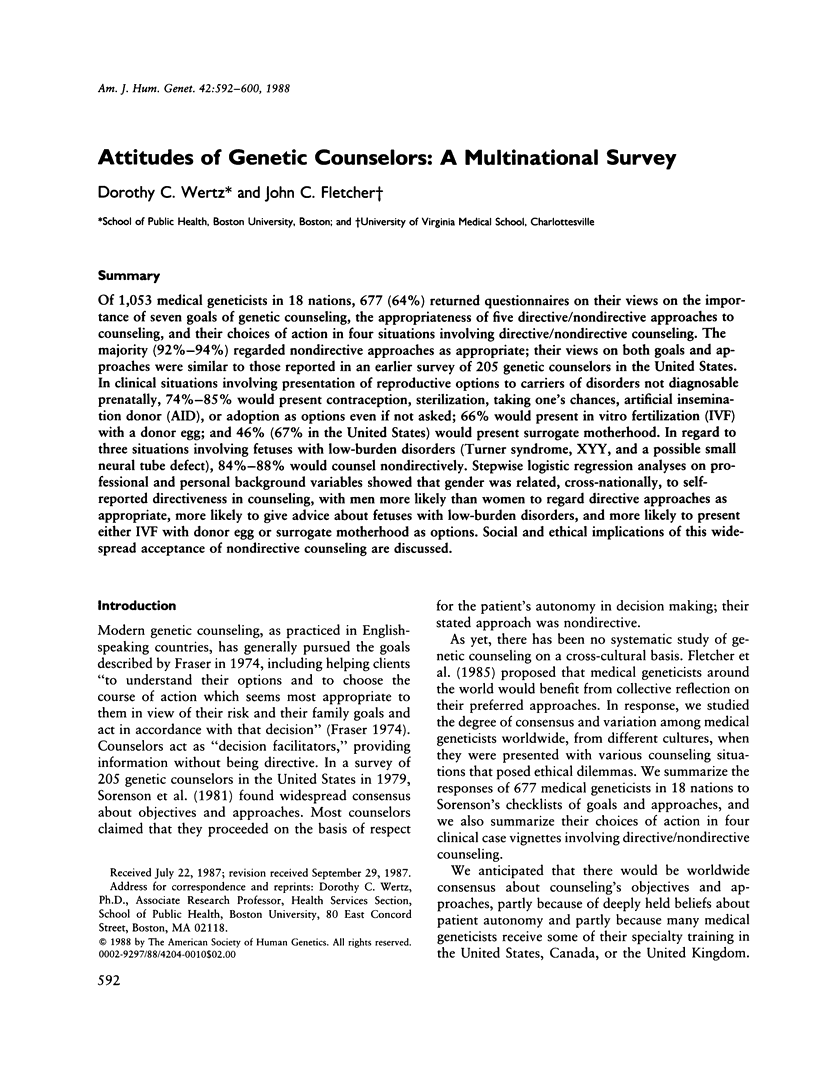
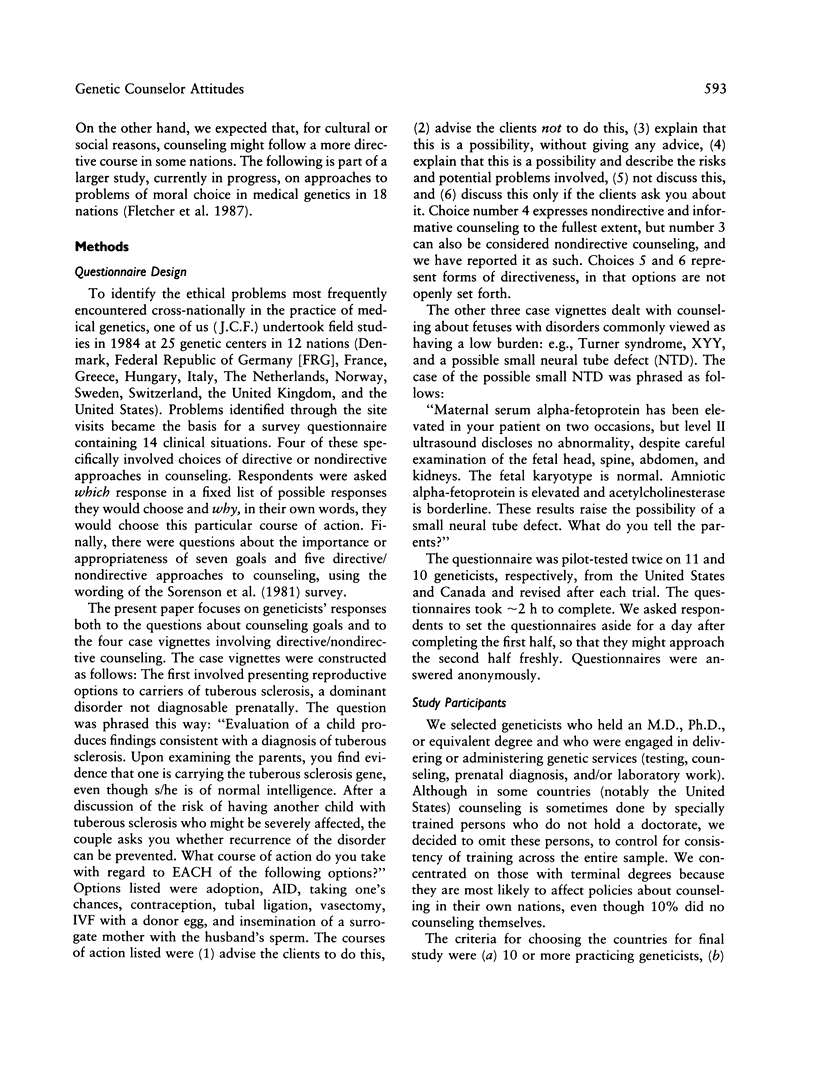
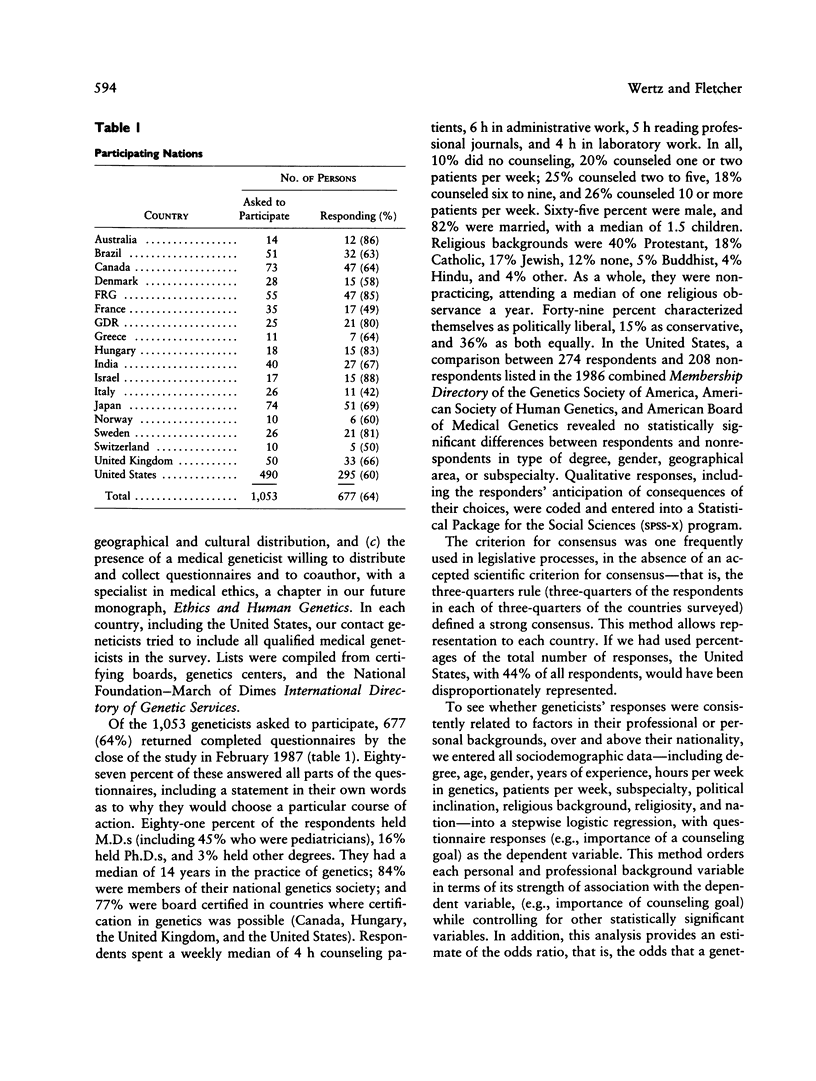
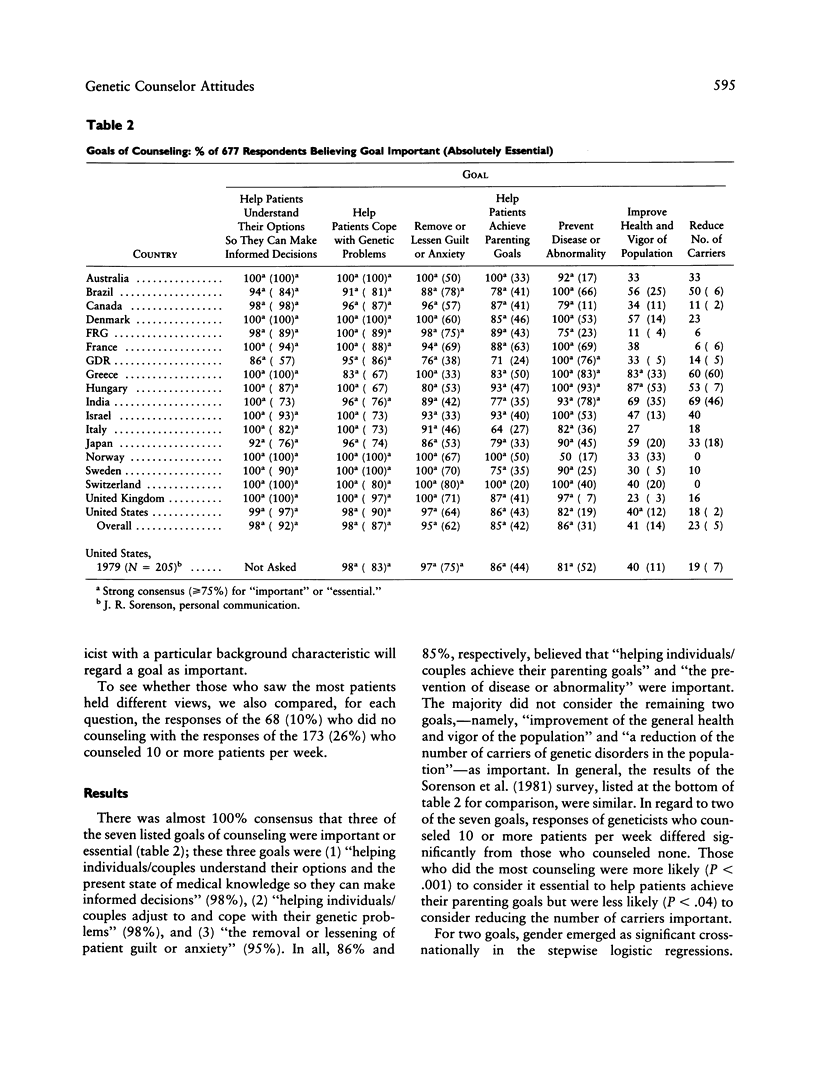
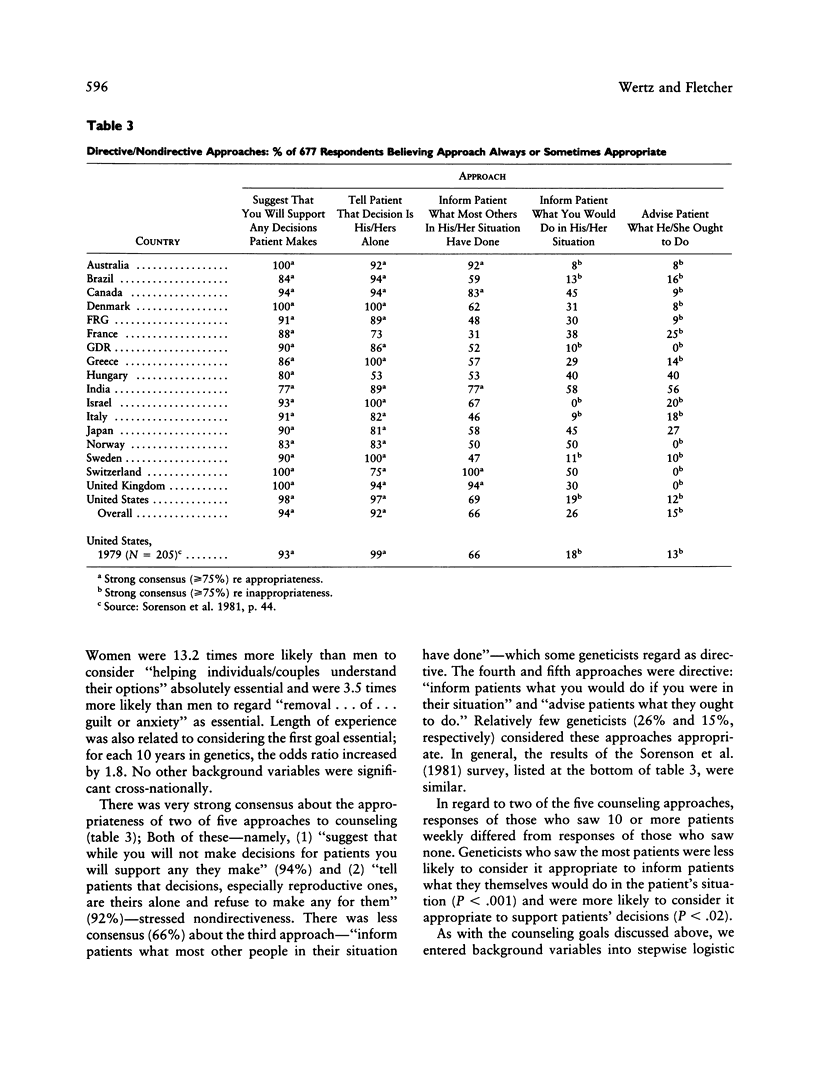
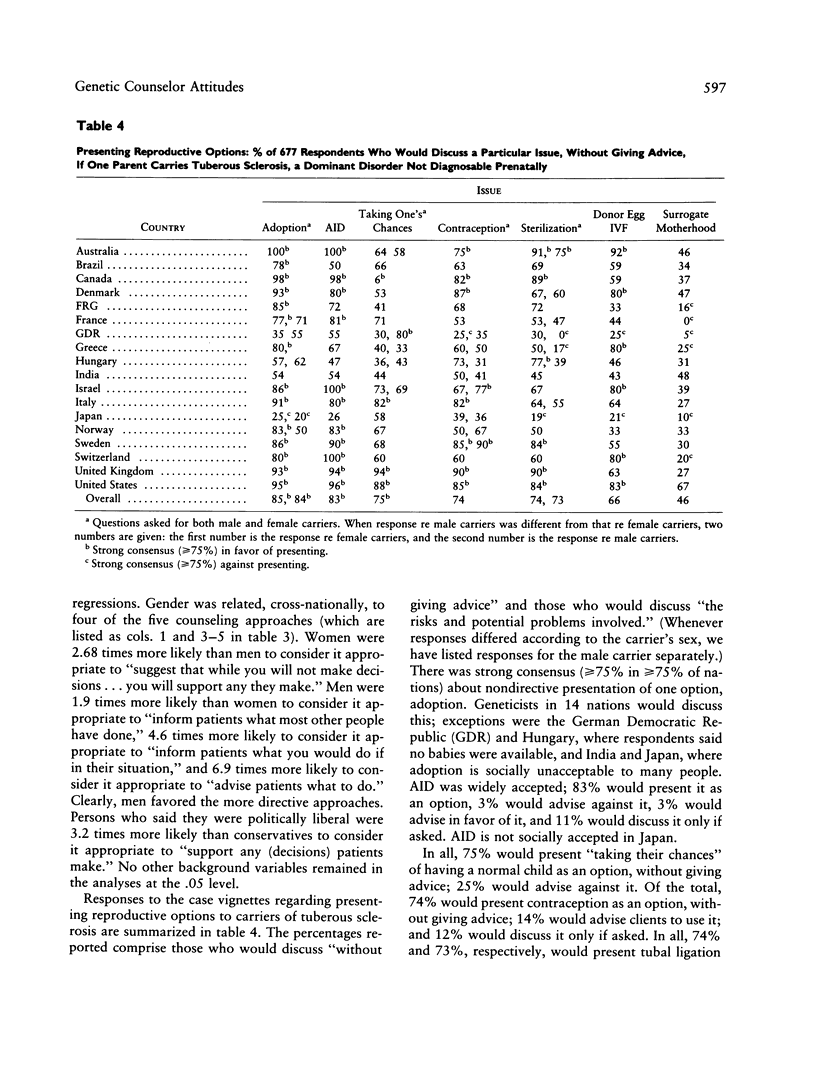
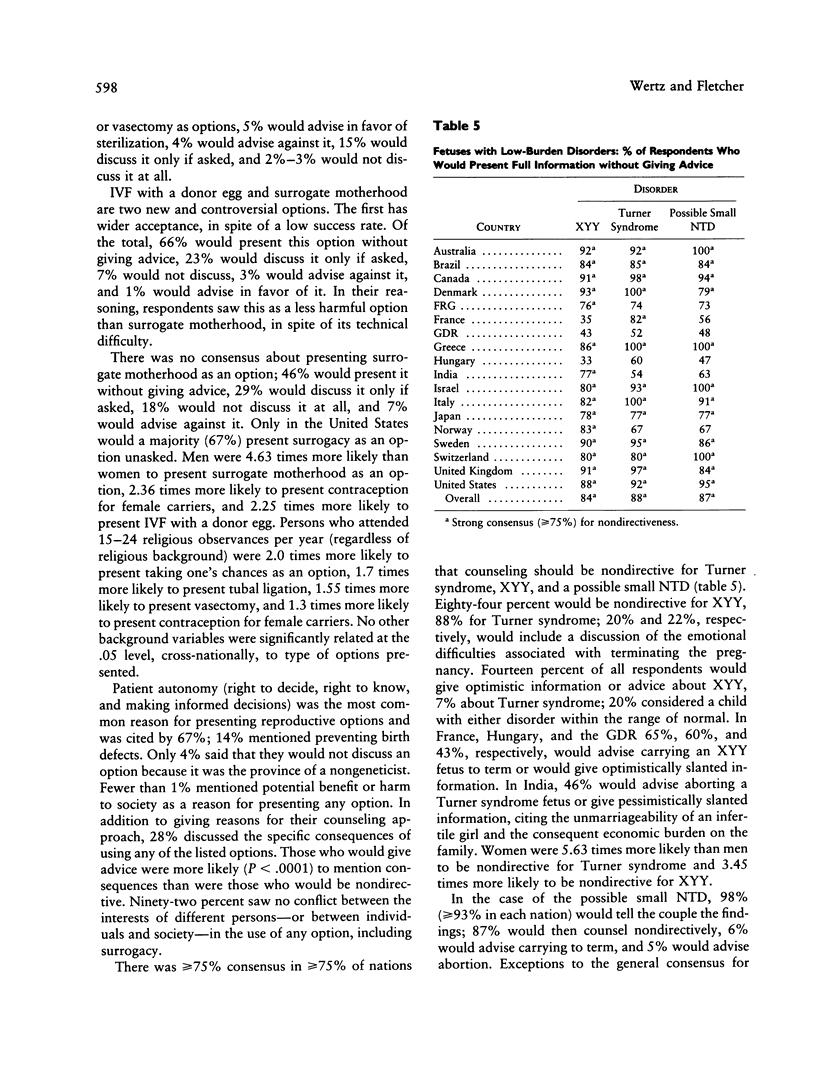
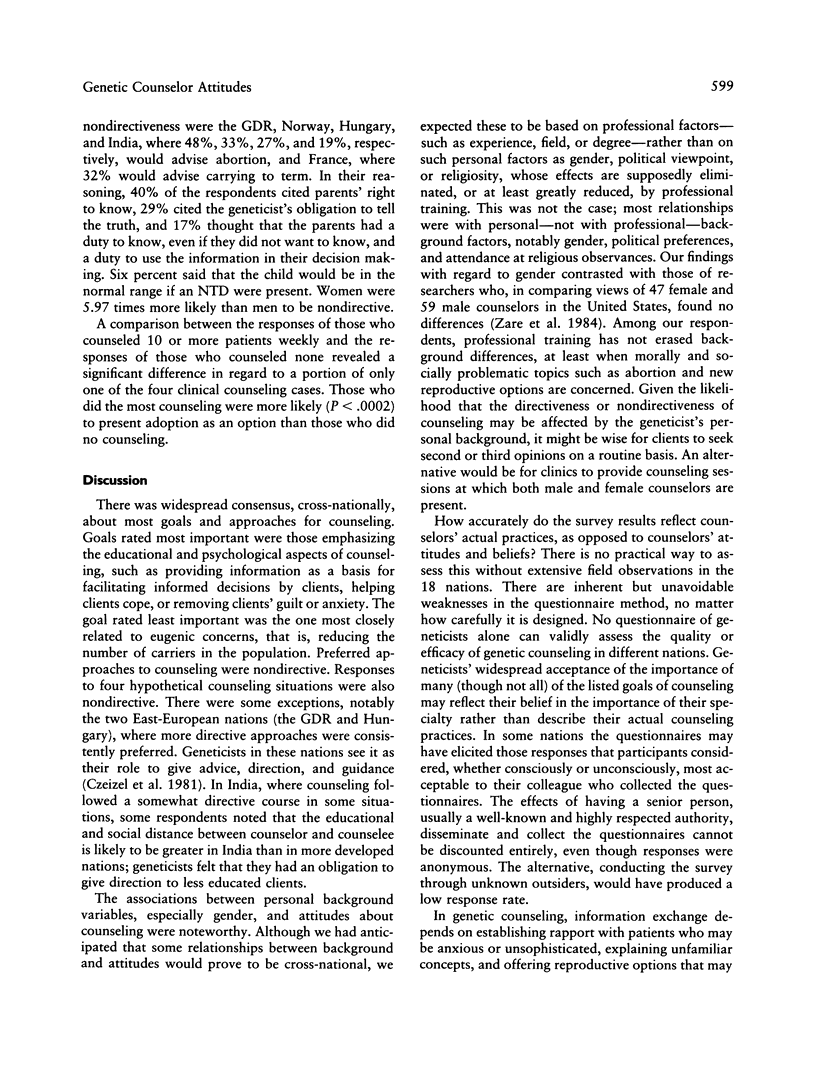
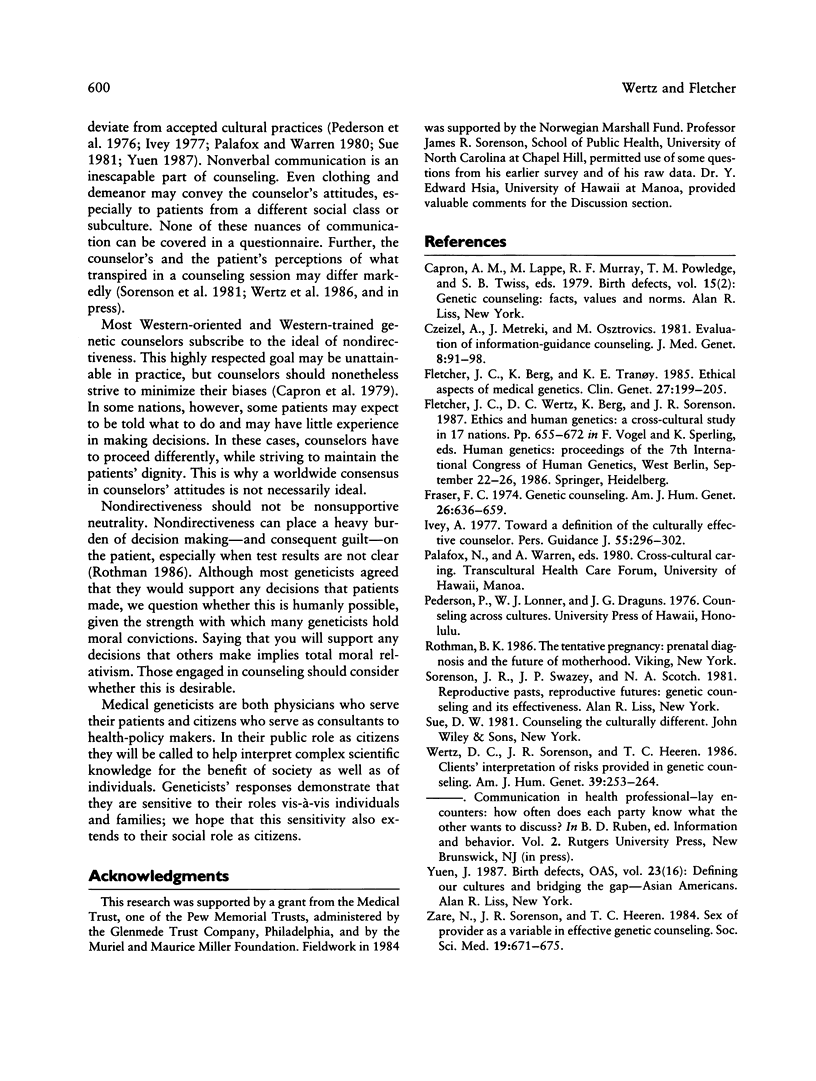
Selected References
These references are in PubMed. This may not be the complete list of references from this article.
- Czeizel A., Métneki J., Osztovics M. Evaluation of information-guidance genetic counselling. J Med Genet. 1981 Apr;18(2):91–98. doi: 10.1136/jmg.18.2.91. [DOI] [PMC free article] [PubMed] [Google Scholar]
- Fletcher J. C., Berg K., Tranøy K. E. Ethical aspects of medical genetics. A proposal for guidelines in genetic counseling, prenatal diagnosis and screening. Clin Genet. 1985 Feb;27(2):199–205. [PubMed] [Google Scholar]
- Fraser F. C. Genetic counseling. Am J Hum Genet. 1974 Sep;26(5):636–659. [PMC free article] [PubMed] [Google Scholar]
- Wertz D. C., Sorenson J. R., Heeren T. C. Clients' interpretation of risks provided in genetic counseling. Am J Hum Genet. 1986 Aug;39(2):253–264. [PMC free article] [PubMed] [Google Scholar]
- Zare N., Sorenson J. R., Heeren T. Sex of provider as a variable in effective genetic counseling. Soc Sci Med. 1984;19(7):671–675. doi: 10.1016/0277-9536(84)90238-7. [DOI] [PubMed] [Google Scholar]



